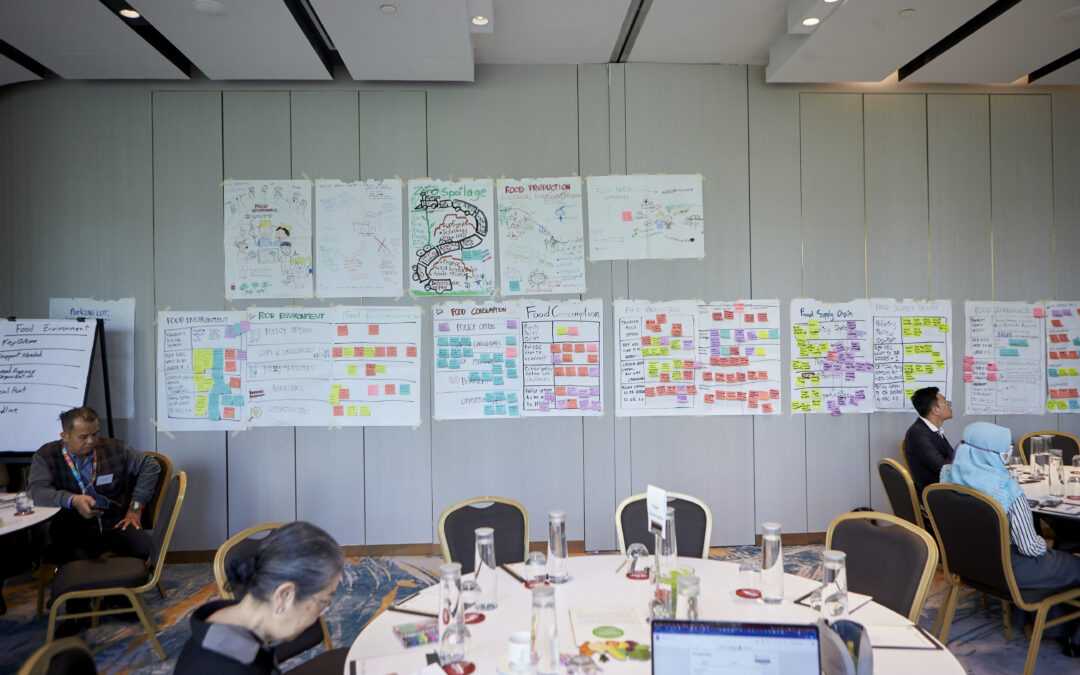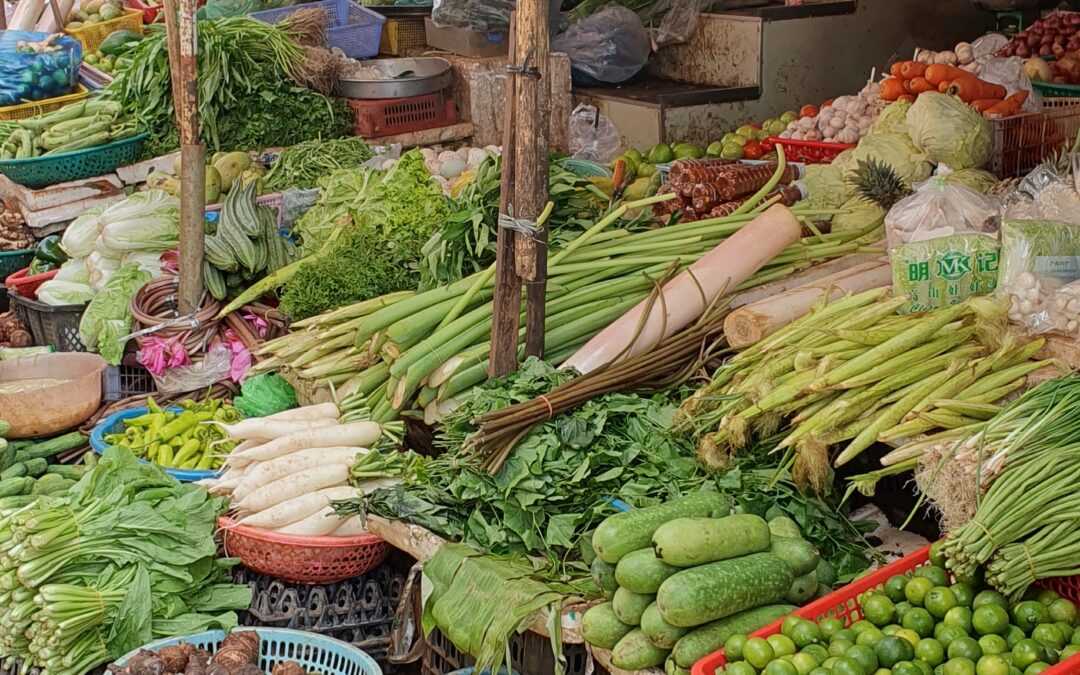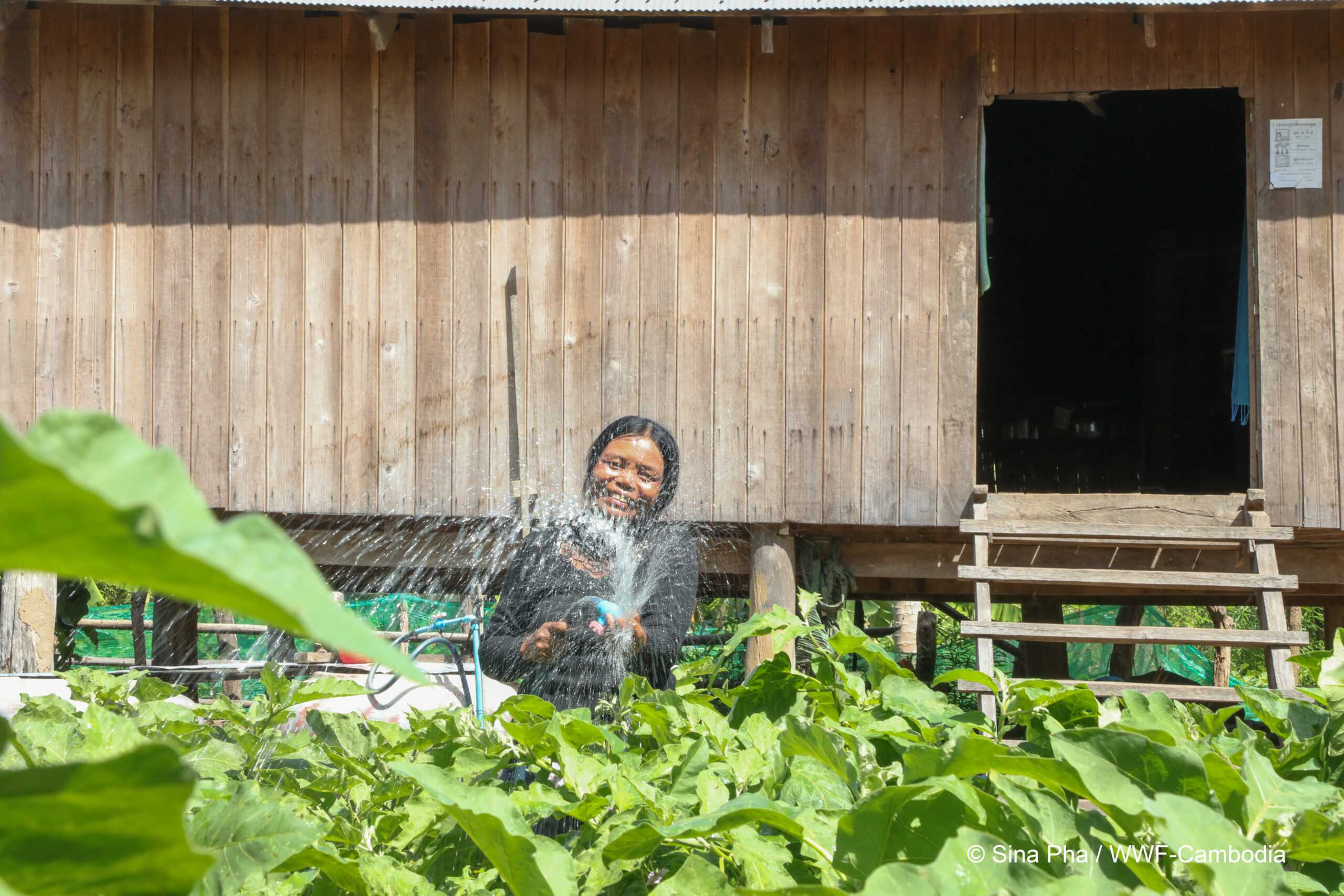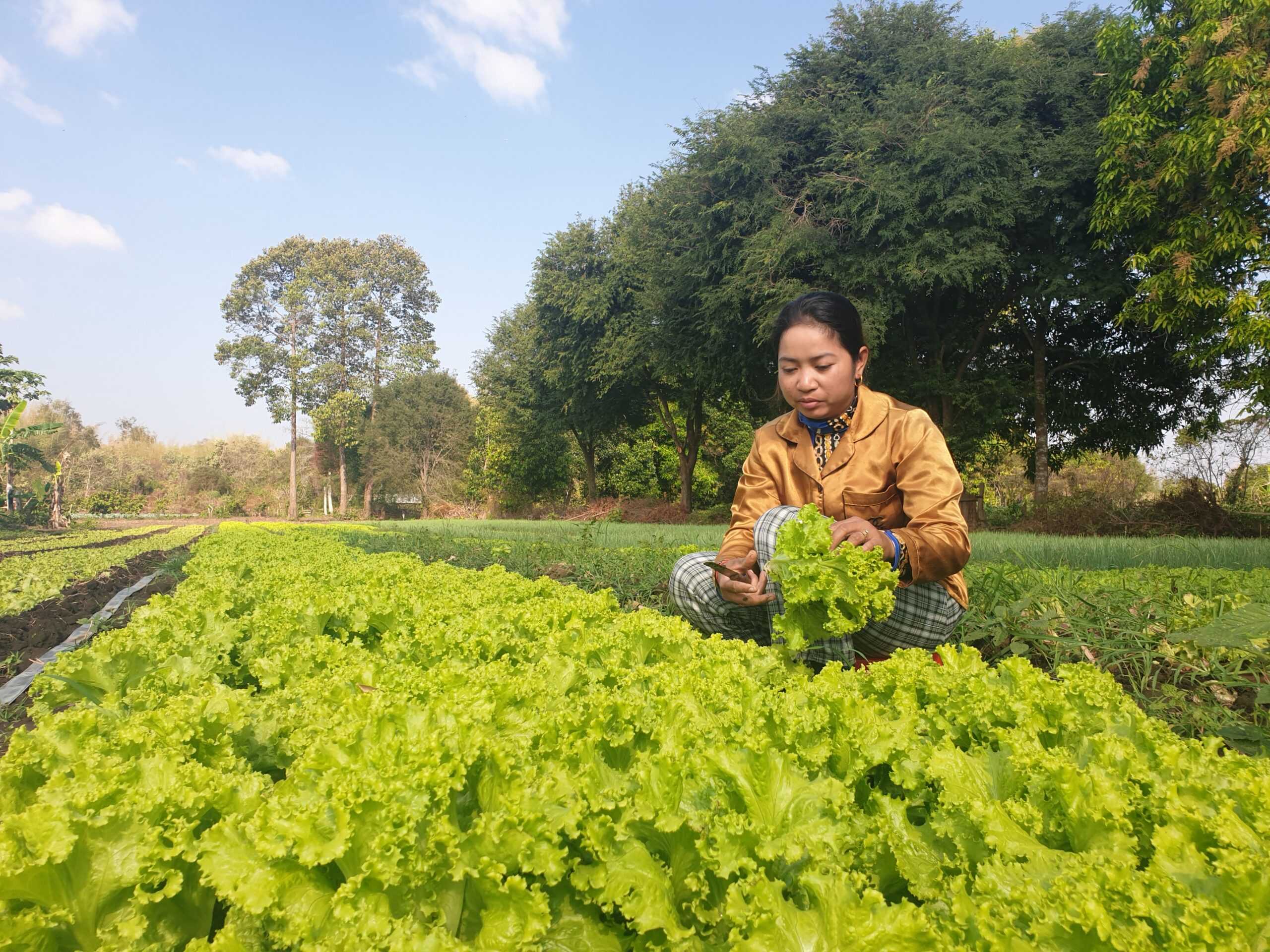Cambodia

In Cambodia, Future Food Together is working closely with key value chain actors such as rural communities, retailers, consumers and government bodies to transform agri-food systems with a holistic approach, implementing solutions along the supply chain from production to consumption.
Background
Cambodia has been through a significant transition in the last 20 years, with an average annual growth rate of 7.7%, making it one of the fastest-growing economies in the world. Although the textile and tourist industries have been driving this economic boom, the agri-food sector has also seen rapid expansion and increased productivity, with crop yields rising by 4% between 2004 and 2012. It is estimated that the sector’s development contributed to improve the livelihoods of around 4 million Cambodians. The sector’s growth and its export boom – from 100.000 in 2010 to 4 million tons in 2018 – has been led by vegetables, cassava, maize, rubber and tropical fruits like mango. However, this rapid expansion has been followed by a range of environmental impacts such as rising GHG emissions, conversion of natural habitats and on the related loss of biodiversity. Cambodia had one of the highest deforestation rates in the world, with a decrease in natural forests from 54%–21% between 1987 and 2017, mainly for the expansion of farmland, which translates into 300 million tons of carbon lost.
Our Work
Since 2022, Future Food Together collaborates with government departments, private sector businesses, farmers, and civil society organizations to put into practice a set of complementary measures for sustainable consumption and production patterns across food systems, and forestry value chains. By jointly developing solutions and encouraging the adoption and use of sustainable products and practices at both the consumer and production levels, we present a great opportunity to improve the overall economic, social and environmental performance of Cambodia’s agri-food system.
Focusing on pilot production sites in the region of Mondulkiri, sustainable production methods will be co-developed and jointly implemented with a range of local rural stakeholders as well as urban and peri-urban actors with which we will develop value chains to reach new markets and connect with the growing green consumer base.
Consumer Engagement
We strive to boost the demand for sustainable goods by empowering customers to make more sustainable choices using better and more accessible consumer information, through educational awareness raising campaigns, and by training a number of consumers to become advocates.
Cooperation with the Government and the Private Sector
In order to assist governments in incorporating SCP principles into cohesive policies that are in line with climate, biodiversity, and all the UN Sustainable Development Goals, we are actively contributing in local, national, and international policy-making processes.
Additionally, we’ve engaged with key stakeholders in Phnom Penh, including Food Panda, a leading food delivery service, and Khmer Organic, an agricultural product chain, to develop joint actions and marketing channels for organic produce under our initiative
Get a brief overview of our project work in Thailand with below factsheet.
Our Project Landscape
The largest province in Cambodia, Mondulkiri, has abundant natural resources and the majority of the nation’s remaining forest cover. After completing our commodity analysis, our team decided to focus our on-the-ground efforts on cocoa, wild honey, and vegetables to start with. We’ve identified producer groups to be involved in this first phase and have provided training to farmers accordingly.
Vision
Our goal is for all stakeholders involved in Cambodia’s food systems— consumers, producers, and other actors along the value chain —to implement sustainable production – including through agroecological and regenerative approaches – and consumption practices so that people live in harmony with nature.
© WWF Cambodia
Links and Materials
- WWF Cambodia’s webpage on the FFT project
- SCP factsheet Cambodia
- Market research report
- Survey on the interests of value chain actors
- Survey on sustainable agricultural production in Mondulkiri Province
- Reports on improving agricultural practices in Cambodia
- Farmer’s story – journey to sustainable farming
Project News

Integrating Food Systems into Climate Action: Lessons from Cambodia and Thailand
Both Cambodia and Thailand have recognized the importance of addressing climate change, but the integration of food systems into their NDCs remains a work in progress. Policymakers in both countries have the power to drive transformative change, but they need the right tools and knowledge to do so.

World Food Day 2024 – The Right to Food
Small impulse, big impact Sometimes all it takes is a small incentive for a big change, says Kim Lape with a smile on his face. He knows well what he's talking about. Just one and a half year ago, the 43-year-old farmer grew vegetables on his farm in the Mondulkiri...

Analysing the status quo on SCP in Cambodia
Cambodia has been part of the Future Food Together Initiative since 2022. We are working with key value chain actors to transform agri-food systems with a holistic approach. After kicking-off the project, three studies were conducted on analyzing the current status of...




